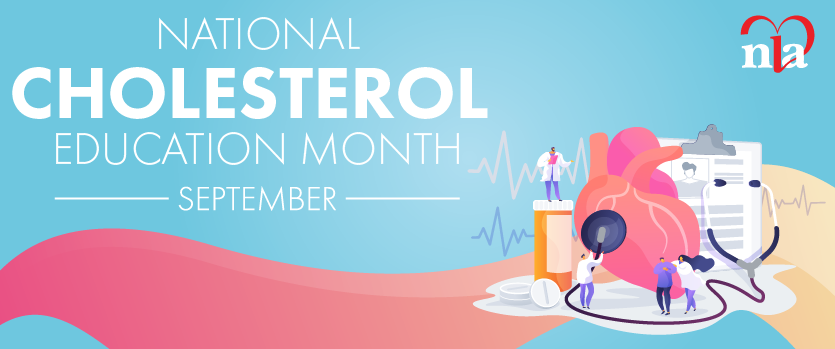Statins reportedly are the most effective of the lipid-modifying drugs in primary and secondary prevention of coronary heart disease.1-6 Yet, many patients are deprived of the benefits of statins because of their associated complications. The most common statin-related complication is myopathy, which was underreported in clinical trials because of the exclusion of patients with a previous history of myalgia.1,7,8 Studies specifically designed to assess the rate of statin-related myalgia have estimated muscle-related complications occur in between 9% and 22% of patients – or 1.5 million people – each year.9-12 This ultimately leads to the discontinuation of statins in between 5% and 10% of patients.11 Practitioners have been searching for strategies capable of alleviating statin-induced myopathy to facilitate the continued use of statins. The most prevalent of these strategies is CoQ10 supplementation.9
Statins, CoQ10 and Myopathies
CoQ10 is essential in cellular bioenergetics, because it participates in the electron transport chain during oxidative physphorylation, leading to adenosine triphosphate (ATP) production.13 Depletion of CoQ10 is known to result in mitochondrial dysfunction, which is theorized to result in myopathy.10,14 The theory of CoQ10 depletion involvement in statin-induced myopathy was first proposed in the late 1980s.14 CoQ10 is an end-product of the mevalonate pathway. Statins are believed to reduce CoQ10 biosynthesis and cause myopathy by interfering with this pathway via the inhibition 3-hydroxy- 3-methylglutaryl coenzyme A [HMGCoA]. 7,10,14,16
CoQ10 Depletion Studies
The theory of statin-induced CoQ10 depletion was supported by Ghirlandaio et al., who published the first doubleblind study assessing the effect of statins on plasma CoQ10 levels. Since then, the relationship of statins and reduced CoQ10 plasma levels has been well documented. 8,10,12,17-36
Conventional wisdom would suggest that, given the role of CoQ10 in muscle-energy production, reversing CoQ10 depletion via supplementation would resolve cases of statin-induced myopathy. The evidence to date has been, at best, controversial.10
CoQ10 Outcomes
The two most widely cited studies, by Young et al. and Caso et al., have produced equivocal results. In a double-blind placebo-controlled pilot study, Young et al. concluded that, despite a significant increase in plasma CoQ10 levels, supplementation with 200mg/day CoQ10 did not improve statin tolerance and myalgia after 12 weeks in patients with prior statin-induced myalgia.37
Caso et al. performed a double-blind, randomized pilot study assessing the effect of 100mg/day CoQ10 versus 400IU/day Vitamin E on the degree of muscle pain and its interference with daily activities. After 30 days, pain intensity decreased significantly from baseline in the CoQ10 group. Those in the Vitamin E group did not experience a significant difference in pain.38
Adding to the dilemma, more recent studies – such as those by Bookstaver et al., Zlatohlavk et al., and Fedacko et al. – also failed to produce consistent results.39-41 Several clinical reviews have assessed these studies and have been unable to definitively conclude that CoQ10 improves statin-induced myopathy. 8,9,42-44
Rethinking Plasma CoQ10
Inconsistencies in the research data have led some to call into question the significance of reduced plasma CoQ10 levels on myalgia.
Researchers suggest that, rather than indicating a true inhibition of CoQ10 synthesis, a reduction in plasma CoQ10 levels should be expected because of the statin-induced reduction of lowdensity lipoprotein (LDL) particles, the primary transporter of CoQ10 in plasma.8 Additionally, while the statininduced depletion of CoQ10 is well documented, research has not established a firm association between statin use and mitochondrial myopathy, because intramuscular CoQ10 levels have not consistently decreased with statins.7,10,42,45 Two studies observed intramuscular CoQ10 increases of 46% and 9% in statintreated patients.46,47
Where do we go from here?
Because of inconsistent results, the National Lipid Association (NLA) has not endorsed the use of CoQ10 for prophylaxis to reduce statin-induced myalgias.48 However, some researchers have suggested that CoQ10 may still have a place in treating statin-induced myalgia, particularly in the setting of CoQ10-depleting conditions such as advanced age, multisystem diseases, multisystem inherited metabolic disease, mitochondrial encephalomyopathies and certain movement disorders, including Parkinson’s disease and some cerbebellar ataxias.7,45 There also is research to suggest the benefits of CoQ10 in patients with cancer. 49,50
Additionally, CoQ10 may be beneficial in patients who have a genetic or neuromuscular predisposition to statininduced myopathies.51,52
The use of CoQ10 may be considered because of its remarkable safety record, because there are no known risks in doses up to 600mg/day.8,10,12,45,54 There is strong evidence based on the observed safety level of CoQ10 that doses up to 1,200mg/ dl are very safe.53 Based on the safety data alone, several authors have suggested CoQ10 should be considered in statinintolerant patients, even if only to induce a placebo effect, arguing minimal risk with possible benefit.10,12,45
Conclusion
To date, there is inconclusive evidence to prove if CoQ10 can reduce statin-induced myopathy in all patients. Some research, however, suggests that it may provide some benefit in certain patients who have CoQ10-depleting conditions. Additionally, the remarkable safety profile makes CoQ10 an attractive low-risk option for practitioners who are aggressively trying to maintain statin use in their patients. More data are needed to determine if CoQ10 is an effective treatment in statininduced myopathy. Many are eagerly anticipating the release of the Parker et al. trial later this year in the Journal of Clinical Lipidology, hoping it will shed more light on this ongoing debate.55
Disclosure statement: Dr. Welding has no disclosures to report. Dr. Ragheb has no disclosures to report.





.jpg)
.png)












